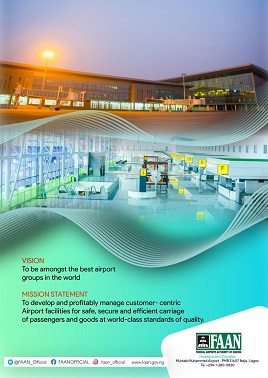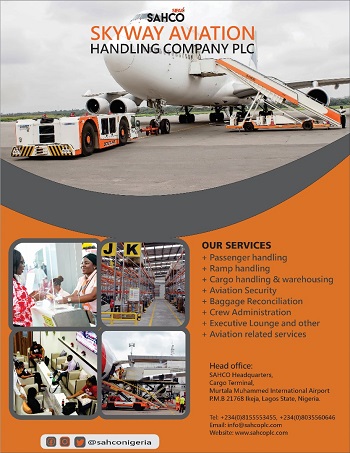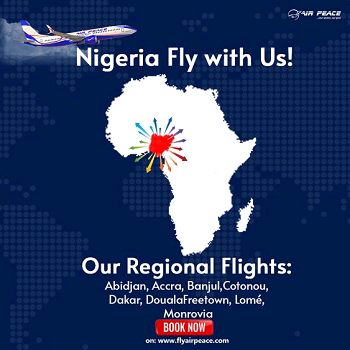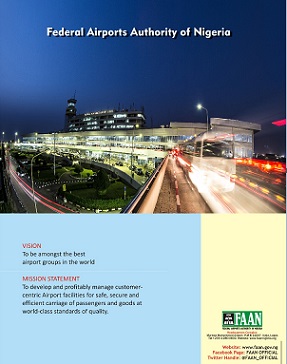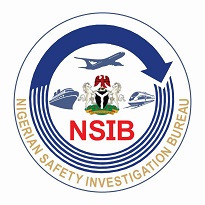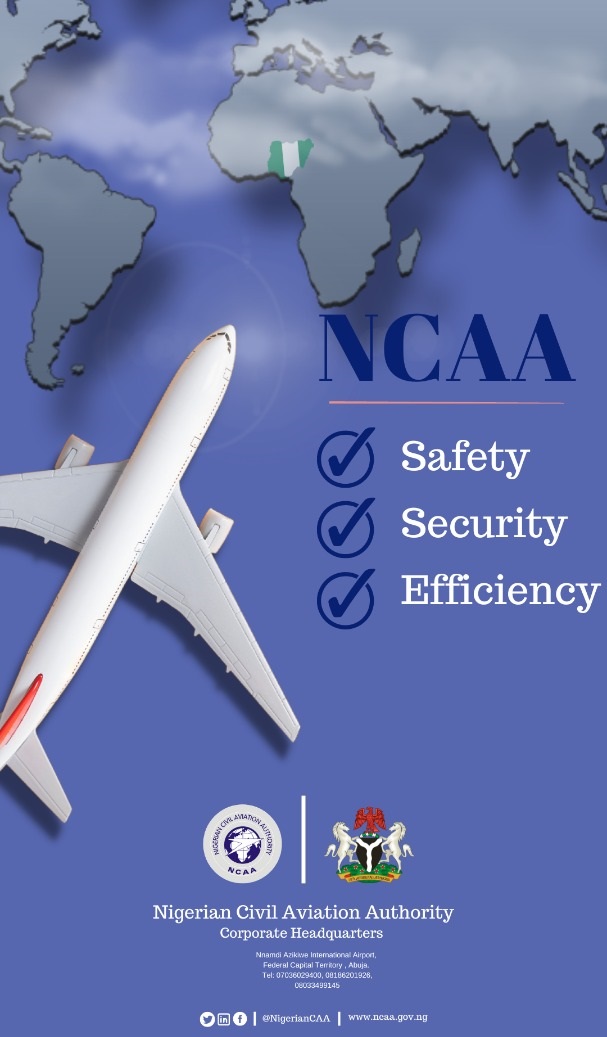
As the African Union (AU) set to launch the first AU Agenda 2063 flagship project, the Single African Air Transport Market (SAATM), in Addis Ababa, Ethiopia, at the ongoing AU Summit, the umbrella body of domestic carriers in Nigeria, Airline Operators of Nigeria (AON) has appealed to the Federal Government of Nigeria to restraint from full implementation of the intra-African open skies initiative.
Notwithstanding its consent to the robust benefits the initiative is projected to offer, AON urged the federal government to show caution on the full implementation of the initiatives in interest of the nation’s economy and the future of the Nigerian youths.
In a press statement made available to African Business Travel News (ABTN) today, the domestic carriers stated: “The Airline Operators of Nigeria (AON) hereby appeals to the Federal Government of Nigeria not to go ahead with the full implementation of the Single African Air Transport Market. While the idea may be noble on paper, there is a need for government not to lose sight of the facts and the dangers of the direct impact of the decision on the Nigerian economy and Nigeria as a whole and the future of our youths”.
It added that its concerns are borne out of many unresolved issues and challenges they face in the course of their operations which may undermine the intended gains of the initiative to the country.
“We are concerned that the timing is not right as there are several unresolved issues and challenges being faced by Nigerian aviation that will ultimately undermine the perceived gains of this Treaty that might be an illusion for our beloved country
“Nigeria is simply not ready to handle the level of unfair competition that the full implementation of SAATM will bring upon the country. A full implementation at this time will lead to massive capital flight, huge loss of jobs for our youth and a mortgaging of our beloved children’s future, as well as a further collapse of the already failing Nigerian aviation system.
So, while we believe open skies is a good idea, we hereby call on the government to have a rethink on the immediate implementation of the open skies and urge them to work with the local technical expertise in the aviation sector by going back to the drawing board and come out with a clear and deliberate policy on how we want to approach, position and take advantage of the open skies to the overall benefit of our beloved country Nigeria,” AON cautioned
AON Chairman, Capt. Nogie Meggison who listed some of the problems that are not offering Nigeria a level playing ground with the full implementation of the initiative said the basic issue of free movement of people and trade is an integral aspect of the declaration that will go a long way to determine the fairness of the SAATM project. He noted that Nigerians require visas to travel to 34 African countries which is an issue which he said needed to be addressed before opening the skies. Insisting that open skies must go with open the visas.
Meggisson also mentioned the unclear and constantly changing policies that throw out Nigerian airlines’ feasibility studies into red as a challenge which has to be addressed. He therefore called on the Federal Government to come out with a clear policy that will position Nigerian airlines to take full advantage of the open skies.
Another issue raised is high bank Interest rates which stand at 28 per cent in Nigeria while their competitors from other African countries have access to cheap funds provided and guaranteed by their governments at a maximum of 2per cent.
He alleged that while Nigerian airlines pay VAT most African carriers don’t pay VAT both in their various countries as well as here in Nigeria. This, he argued is already a deficit of 5 per cent% on a small margin industry from the start for Nigerian Airlines.
The leader of Nigerian carriers also alleged that airlines in Nigeria don’t have access to foreign exchange (forex). According to him, “We only get allocation per percentage of our bids which takes an average of 6 months. Most of the African carriers are subsidized and being funded by their government”.
He also said that Nigerian airlines are at a disadvantage than their counterparts which are largely government owned and heavily subsidized. To buttress his claims, he mentioned South African Airways which on average got about $350m yearly in the past decade; Kenya Airways about $600m in 2016, while RwandAir has never published its financial results for over a decade. He therefore expressed his fear how Nigerian airlines which are privately owned could favourably compete at private finance of 28 percent against the aforementioned African airlines
Besides subsidies other African airlines enjoyed from their home governments, Meggisson regretted that Nigerian airlines are subjected to multiple charges, taxes, levies and fees. According to him, “On the average, we pay about 37 different charges that come under the guise of statutory levies and taxes to sustain a staff strength of about 18,000 staff of the various government agencies compared to most African carriers who pay a fraction in their countries to support a staff strength of less than 500.
“The charges around Africa are not uniform across board. Government should ensure all the taxes are uniform before the implementation of the Open skies. For instance, when we fly to some African countries they charge us heavy landing fees in excess of $5000 – $6000. The same countries subsidize their local operators who pay $200 for the same service. But when they fly into Nigeria they pay a mere $500, the same as our local carriers”.
On fueling, the AON alleged that airlines in Nigeria pay high prices for JetA1 due to high taxes compared to some other countries where VAT and taxes on JetA1 have been abolished to their local carriers and some of them have local production of subsidized fuel.
He noted that countries like Ethiopia that is a strong pusher of the open skies idea makes 45 per cent of its income from Nigeria, yet Ethiopian Airlines has not employed Nigerians as Air Crew or Ground Technical staff, but drains our beloved country of our scarce resources to contribute 32 per cent of Ethiopia’s national GDP at the expense of the Nigerian economy and her unemployed youths.
“It should be put on record that monies made in Ethiopia can’t be taken out of the country. This is a sharp contrast with our case in Nigerian where everyone comes into the country to make free money and move them out of the country effortlessly leading to huge capital flight and putting stress on our foreign exchange reserve,
“It is also noteworthy to state at this juncture that Ethiopia has a Visa on Arrival policy for over 40 countries. But sadly, and with disrespect, Nigeria that contributes immensely to their GDP, is not included among them and South Africa is the only African country included on the list,” he said..
Apart from the threats within the continent Meggisson observed that the threat of non-African investors abusing the open skies by setting up airlines is real; since there is no way of ascertaining their shareholder structure and how to ascertain whether they are Africans, thereby diverting investment from Nigeria into neighbouring countries with the Nigerian market as the target.
The AON which queried the reason Nigeria is in a rush to sign the sign the open skies deal when 57% of the 54 nations in Africa are yet to commit themselves to it, asked, “Only 23 countries have committed themselves to open skies. The question therefore is why is Nigeria in a hurry to sign the Treaty when we are yet to put our domestic aviation industry in order first and empower our Nigerian carriers to compete effectively?”
On Entry points, While noting that Nigeria is the only country in Africa with eight (8) entry points while most of the other African countries have only one entry point, AON considers it as unfair and a complete disconnect that Nigerian airlines who are the fulcrum of the implementation of SAATM in the country were not carried along in the decision process leading up to the signing of a Treaty and Firm Commitment to the process which will ultimately affect the future aviation of Nigeria in many years to come and the survival of our airlines.
It regretted that airlines were only invited to a stakeholders forum for a briefing, barely 72hours to the signing of what has already been concluded without seeking the opinion of airlines and aviation entrepreneurs for advice and strategies on how to harness the open skies to the advantage of our beloved country Nigeria as a whole.
The AON therefore enjoined President Muhammadu Buhari to observe the wind of change blowing across France, Germany, United Kingdom, Canada and emulate the American President Donald Trump who put America first, and therefore put Nigeria first.


